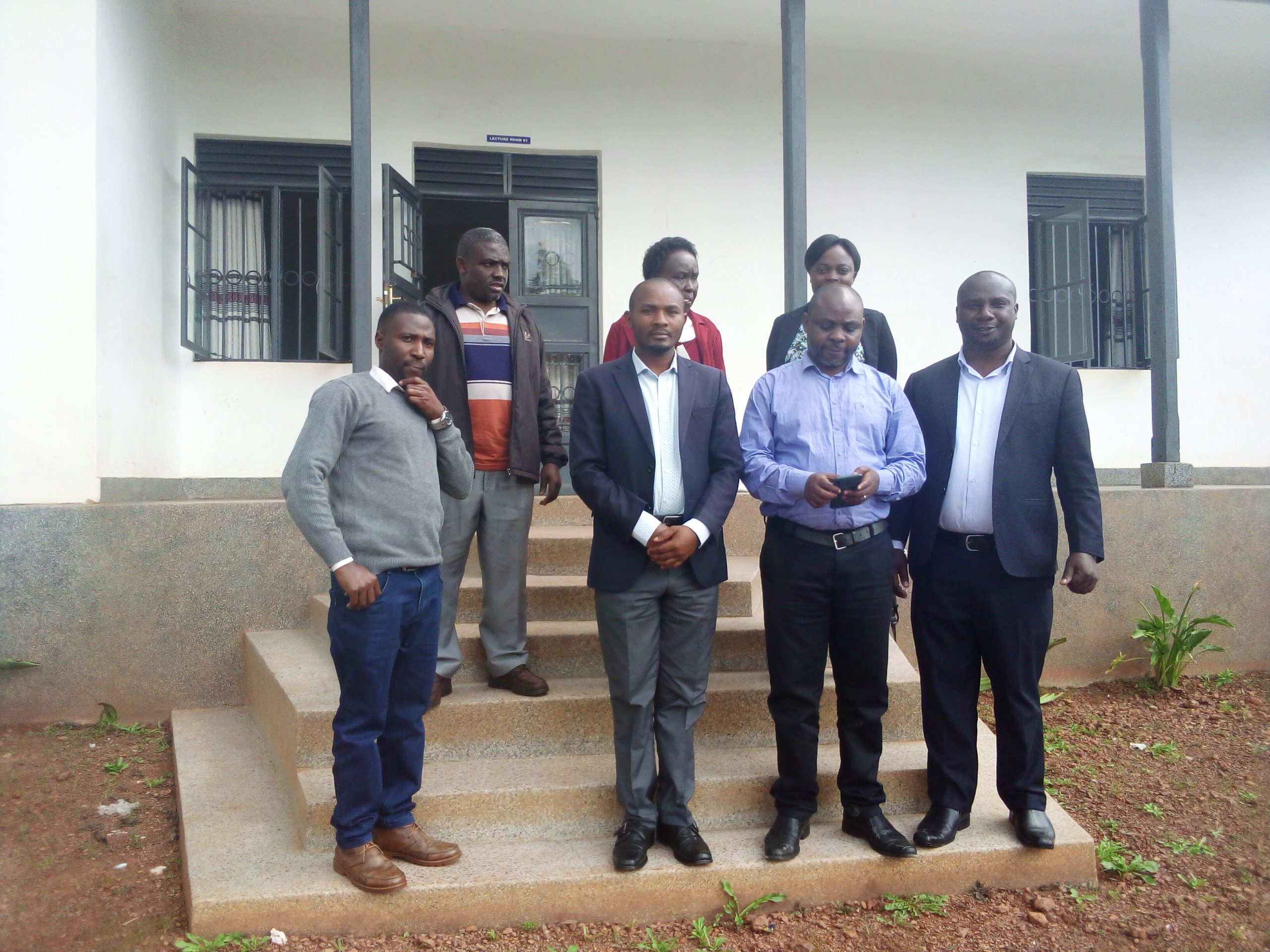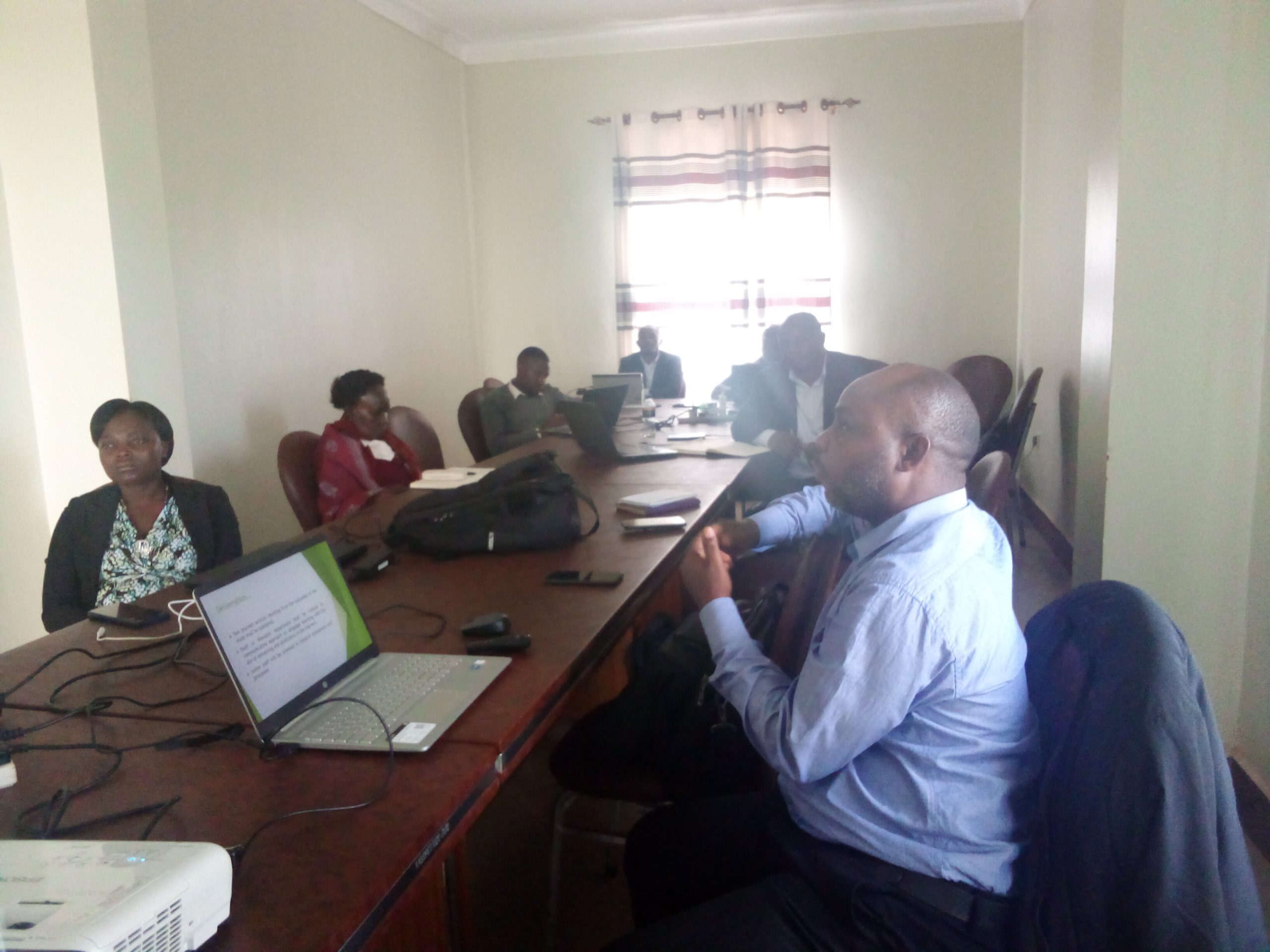Kabale University Institute of Language Studies has taken a bold step towards promoting the use of Kiswahili in Uganda’s informal sector by launching a research project titled “Taking Kiswahili to the Informal Sector: Developing Kiswahili Oral Proficiency as a Soft Skill to Widen Economic Projects in Uganda” ( “Kushirikisha Watu wa Jua Kali katika Wipango ya Kuendeleza Kiswahili nchini Uganda”), the project aims to explore how the informal sector can harness the acquisition and usage of Kiswahili to enhance economic prospects within the country.
The project, which was launched today on Wednesday, 4th May 2023, at the postgraduate section, aims to develop Kiswahili oral proficiency as a soft skill to widen economic projects in Uganda.This prestigious gathering brought together esteemed professors and doctors of Kiswahili, united in their mission to advance the role of Kiswahili in Uganda’s informal sector.
Leading the presentation was Dr. Majariwa David (Director Institute of Language Studies), the key note presenter, who eloquently outlined the project’s objectives to the participants. The first objective focuses on investigating how the informal sector can leverage Kiswahili acquisition and usage. Additionally, the project seeks to assess the oral competences of individuals within the informal sector, determine Ugandans’ perception of Kiswahili as a communication tool, and analyze the factors influencing oral proficiency and usage of Kiswahili.

To achieve these goals, Dr. David detailed a range of strategies, including radio talk shows, television appearances, and journal publications. He also highlighted the study population and sampling techniques employed, revealing that a sample of 528 individuals was involved. Of this number, 400 residents were targeted to provide data regarding Ugandans’ perception of Kiswahili for communication purposes.Ethical considerations and adherence to research ethics were given utmost importance, as Dr. David emphasized the role of the research ethics committee in ensuring the project’s integrity. The anticipated outcomes of the research are expected to exert a significant influence on the presence and utilization of Kiswahili in Uganda, ultimately mobilizing individuals within the informal sector to acquire proficiency in the language.
Dr. David also expounded on the project’s deliverables, discussing the medium and long-term benefits. In the short term, the study aims to raise awareness among the population, promoting the teaching of Kiswahili for national cohesion and East Africa integration. Additionally, the project aspires to formulate a training assessment manual for developing Kiswahili in the informal sector and to contribute to the creation of policies concerning Kiswahili instruction in this sector. Looking to the long term, the inclusion of the informal sector in Kiswahili development and an increase in Kiswahili proficiency are anticipated, bolstering the involvement of informal sector staff in East Africa.

Highlighting the importance of effective communication, Dr. David underscored one of the key Sustainable Development Goals (SDGs). The project aims to influence the government sector and equip individuals in the informal sector with Kiswahili proficiency, empowering them to actively participate in the East African community. Soft skills will also be emphasized, adding value to the sector’s workforce.As the presentation concluded,
Dr. David outlined the expected outcomes, including a report containing policy recommendations for Kiswahili development, the creation of assessment manuals for oral proficiency, two journal articles presenting the project’s findings, and comprehensive training programs for staff focused on research development.
With the launch of this ambitious Kiswahili research project,Kabale University Institute of Language Studies solidifies its commitment and a significant step towards promoting the use of Kiswahili in Uganda’s informal sector, which will improve communication and promote national cohesion and East Africa integration. The project is expected to bring positive change in the informal sector and contribute to the overall development of Kiswahili in Uganda.